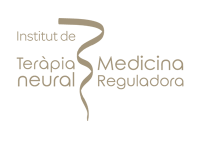Anxiety During Pregnancy – Is it Normal?

11 Minutes
Anxiety during pregnancy is something many expectant mothers encounter. Pregnancy is a time of big changes—both physically and emotionally—which can naturally stir up a mix of excitement and worry. From wondering about the baby’s health to thinking about the upcoming childbirth, it’s easy to see why anxiety levels might rise. These feelings can range from general concerns to specific fears about labor and delivery.
But what happens when those worries become too much? When anxiety starts to feel overwhelming and constant, it can interfere with daily life and peace of mind. This type of intense anxiety might be more than just the usual pregnancy jitters and could be a sign of a disorder that needs some extra attention.
Yes. Anxiety and depression are significant complications during pregnancy, affecting between 20-40% of expectant mothers. A study involving 432 pregnant women found that 132 of them (30.5%) were diagnosed with anxiety disorders. Of these, 61 women (47.7%) were dealing with pregnancy adjustment disorder, where the dramatic changes and challenges of pregnancy felt overwhelming. Another 52 women (40.6%) had generalized anxiety disorder, marked by persistent and excessive worry about various aspects of life. Additionally, 15 women (11.7%) faced a specific phobia related to delivery, an intense fear of the childbirth process.
Prenatal anxiety is a specific type of anxiety that typically occurs during pregnancy, particularly in the first trimester. A certain level of anxiety is natural and can be protective. This type of anxiety motivates expectant mothers to attend prenatal appointments, follow medical advice, and make healthy lifestyle choices to ensure the well-being of themselves and their baby. However, prenatal anxiety involves more intense and frequent symptoms that require attention.
Types of Prenatal Anxiety
| Type | Description |
| Generalized Anxiety Disorder (GAD) | Persistent and excessive worry about various aspects of pregnancy and everyday life, often without a specific cause. |
| Panic Disorder | Sudden and unexpected panic attacks characterized by rapid heartbeat, sweating, and fear of losing control, often triggered by pregnancy-related stressors. |
| Pregnancy Adjustment Disorder | Anxiety specifically related to adjusting to the changes and challenges brought by pregnancy. |
| Specific Phobia (Tokophobia) | Intense fear related to childbirth or specific aspects of pregnancy, such as the delivery process or medical procedures. |
| Obsessive-Compulsive Disorder (OCD) | Recurrent, intrusive thoughts (obsessions) and repetitive behaviors (compulsions) related to pregnancy, such as constant checking on baby’s health. |
| Social Anxiety Disorder | Excessive fear of social situations related to pregnancy, such as attending prenatal classes or interacting with healthcare providers. |
| Post-Traumatic Stress Disorder (PTSD) | Anxiety triggered by past traumatic events, which can include previous pregnancy complications or traumatic childbirth experiences. |
Prenatal anxiety is driven by a variety of factors. From hormonal changes to concerns about the baby’s health and financial worries, several elements contribute to heightened anxiety during this critical period.
Hormonal Changes
During the first trimester, a woman’s body undergoes significant hormonal changes to support the developing fetus. These hormonal shifts can impact neurotransmitter levels in the brain, which regulate mood.
Past Miscarriages
For women who have experienced miscarriages in the past, the early stages of a new pregnancy can be fraught with anxiety. The fear of losing another pregnancy can overshadow the joy of expecting, leading to heightened emotional stress and worry.
Baby’s Health
Worrying about the health and development of the unborn child is a common source of anxiety. During the first trimester, the risk of developmental issues and pregnancy complications can be a constant concern.
Concerns About Relationships
Expectant mothers may worry about how a new baby will affect their relationships with their partner, friends, and family members. Concerns about losing independence, changes in social dynamics, and the need for additional support can create significant stress.
Fear of Childbirth
Anxiety about the delivery process, known as tokophobia, can start early in pregnancy. Women may fear the pain associated with childbirth, potential complications, or the need for medical interventions such as cesarean sections.
Sleep Disturbances
Pregnancy often disrupts normal sleep patterns due to various factors like increased need to urinate, hormonal changes, and physical discomfort. Poor sleep can exacerbate feelings of anxiety and depression, as restful sleep is crucial for emotional regulation.
Financial Worries
The financial implications of having a baby can be daunting. Expectant parents may worry about the costs of prenatal care, childbirth, and the long-term expenses of raising a child, including healthcare, childcare, and education.
Anxiety during pregnancy can manifest in various ways, impacting the emotional and physical well-being of expectant mothers.
Occupied with Worries
Anxiety can lead to excessive worrying about multiple aspects of pregnancy and motherhood. Expectant mothers may find themselves preoccupied with thoughts about their baby’s health, the upcoming birth, and their ability to be a good parent.
Feeling Stressed or Tensed at Most Times
Pregnant women experiencing anxiety often feel a constant sense of stress or tension. This can be due to the various physical, emotional, and psychological changes happening during pregnancy.
Feeling Fearful of Handling Baby
New mothers may feel intense fear about handling or caring for their newborn. This can include worries about dropping the baby, not feeding them properly, or failing to soothe them when they cry.
Unable to Relax or Sleep Well
Anxiety often disrupts sleep patterns, making it hard to fall asleep or stay asleep. Pregnant women may lie awake with racing thoughts or repeatedly wake up to check on the baby.
Constant Worry About Baby’s Health
Even when there are no indications of problems, pregnant women with anxiety might constantly worry about the health and well-being of their baby. This can involve fears about developmental issues, potential illnesses, or complications during childbirth, leading to frequent visits to the doctor or unnecessary medical tests.
Indecisiveness
Anxiety can cause significant indecisiveness, making it hard for pregnant women to make decisions. This may stem from a fear of making the wrong choice and worrying about the potential negative outcomes. As a result, even simple decisions can feel overwhelming and paralyzing.
Excessive Checking Behaviors
Anxiety can manifest as compulsive behaviors, such as repeatedly checking to ensure the baby is still breathing or that everything is prepared for the baby’s arrival. These behaviors can interfere with normal routines and create additional stress and anxiety.
Panic Attacks
Severe anxiety can lead to panic attacks, characterized by intense episodes of fear accompanied by physical symptoms such as heart palpitations, shortness of breath, chest tightness, dizziness, numbness, and extreme fear.
There are a variety of strategies that can help manage the anxious feelings and promote a more peaceful pregnancy experience. Here are some practical and effective ways to keep anxiety at bay and enhance the pregnancy journey.
- Improve diet: A nutrient-rich diet can help manage anxiety. Incorporate foods high in omega-3 fatty acids, to support brain function. Ensure adequate vitamin D intake by eating foods like eggs and seaweeds, which help maintain mood-regulating hormones. Limit caffeine and sugar to avoid exacerbating anxiety.
- Practice relaxation methods: Engaging in relaxation techniques can significantly reduce maternal stress. Activities such as listening to music, guided imagery, meditation, acupuncture, and prenatal yoga have been shown to alleviate anxiety symptoms.
- Stay active: Regular exercise, with doctor’s approval, can alleviate stress and anxiety. Activities like walking, yoga, and low-impact exercises can help keep your mind grounded and your body healthy.
- Prioritize quality sleep: In a study examining nearly 47 million delivery hospitalizations, 24,625 women were diagnosed with insomnia. This equates to a rate of 5.2 per 10,000 deliveries. Quality sleep is crucial for managing pregnancy anxiety. Aim for 8 to 10 hours of sleep each night. If nighttime sleep is difficult, consider daytime naps. Using a pregnancy pillow and establishing a relaxing bedtime routine can improve sleep quality.
- Take control of Small Tasks: Engaging in controllable activities, such as organizing your space or managing finances, can provide a sense of accomplishment and reduce anxiety.
- Engage in Rhythmic Activities: Activities with a predictable rhythm, like listening to slow music, jogging, or rewatching familiar movies, can help soothe the mind and reduce anxiety. These activities help create a calming and predictable environment.
- Consider Cognitive Behavioral Therapy (CBT): CBT is highly effective for managing anxiety during pregnancy. This therapeutic approach involves working with a licensed therapist to identify and modify negative thought patterns and behaviors.
Managing anxiety during pregnancy is crucial for the well-being of both the mother and the baby. While many women worry about the potential risks of taking medications during this time, there are safe options available.
Concerns about taking medications during pregnancy often stem from historical examples like thalidomide, a drug that caused severe birth defects when prescribed for morning sickness. This history makes many expectant mothers wary of medication use. However, it’s important to balance these potential risks to the fetus with the benefits of treating the mother’s anxiety or depression.
Safe medication options
Many antidepressants and anti-anxiety medications are considered safe during pregnancy, though adjustments may be necessary. Selective serotonin reuptake inhibitors (SSRIs) such as sertraline and citalopram are generally deemed safe. These medications can help manage anxiety and depression effectively, supporting the mother’s mental health during pregnancy.
Medications requiring caution
Some medications require more cautious use during pregnancy. Paroxetine, for instance, needs careful prescription due to early research linking it to cardiac defects in infants, though recent data are inconclusive. Tranquilizers such as lorazepam, diazepam, and clonazepam are typically used only short-term or as-needed, but also expose you to certain risks during pregnancy. These medications are usually prescribed as a temporary measure while other treatments take effect or to help manage particularly challenging periods.
Disclaimer: This information is provided for educational purposes only and is not intended as a substitute for professional medical advice, diagnosis, or treatment. Always seek the advice of your physician or other qualified health provider with any questions you may have regarding a medical condition or medication. Never disregard professional medical advice or delay in seeking it because of something you have read here. If you are pregnant or planning to become pregnant, consult your healthcare provider before taking any medication.
Herbal medicines, known for their effectiveness and minimal side effects, are commonly used to reduce stress, promote relaxation, and improve sleep. These natural treatments offer a safe alternative to synthetic medications, which many expectant mothers prefer to avoid.
Commonly Used Herbal Products and Their Benefits
| Herbal product | Percentage of use | Benefits |
|---|---|---|
| Ginger | 49.2% | Reduces nausea, may have calming effects |
| Raspberry Leaf | 42.7% | Supports uterine health, may ease labor |
| Bryophyllum | 37.8% | Reduces stress, restlessness, and sleep disorders |
| Chamomile | 27.2% | Promotes relaxation, improves sleep quality |
| Lavender | 22% | Calms nerves, helps with anxiety and sleep |
| Iron-rich Herbs | 12.3% | Supports overall health, may reduce fatigue |
These herbal products have been reported by pregnant women to provide significant relief from symptoms of anxiety and stress, making pregnancy a more comfortable and manageable experience.
Myth: Anxiety during pregnancy will harm the baby.
Reality: While severe and untreated anxiety can have adverse effects, mild to moderate anxiety is not likely to harm the baby. It’s crucial to manage anxiety through appropriate strategies and professional support to ensure both maternal and fetal well-being.
Myth: Women should avoid all medications for anxiety during pregnancy.
Reality: Not all medications are harmful during pregnancy. Some medications can be used safely under medical supervision. The risks and benefits need to be carefully weighed by a healthcare provider. There are also non-pharmacological treatments available, such as therapy and lifestyle modifications.
Myth: Only women with a history of anxiety will experience it during pregnancy.
Reality: Anxiety can affect any pregnant woman, regardless of whether she has a prior history of anxiety. Hormonal changes, stress, and the anticipation of motherhood can all contribute to anxiety, even in those without a previous diagnosis.
Myth: Anxiety is a sign of weakness or poor maternal instincts.
Reality: Anxiety is a medical condition, not a reflection of a woman’s strength or her abilities as a mother. It’s important to recognize that experiencing anxiety does not make someone a bad parent. Seeking help and managing anxiety is a sign of strength and responsibility.
Myth: You can simply will away anxiety.
Reality: Anxiety is not something that can be controlled by willpower alone. It often requires a combination of approaches, including therapy, support from loved ones, lifestyle changes, and sometimes medication. Professional help can be essential in effectively managing anxiety.
Myth: Anxiety during pregnancy will go away after childbirth.
Reality: While some women may experience relief from anxiety after giving birth, others may continue to struggle with it or develop postpartum anxiety or depression. Ongoing support and treatment may be necessary to manage symptoms.
Myth: Natural remedies are always safe for managing anxiety during pregnancy.
Reality: Not all natural remedies are safe during pregnancy. Some herbs and supplements can have harmful effects on both the mother and the baby. It’s essential to consult a healthcare provider before starting any natural or alternative treatments.
Myth: Anxiety in pregnancy is just a phase and doesn’t need treatment.
Reality: Untreated anxiety can lead to significant distress and can impact a woman’s ability to function effectively during pregnancy and postpartum. Proper treatment and support are crucial for the health and well-being of both the mother and the baby.
Luxury rehab clinics, like the SENSES WellnessClinic, offer an ideal blend of advanced medical care and holistic practices in beautiful settings. Imagine escaping daily stressors to a tranquil environment where personalized plans, including relaxation techniques, therapeutic activities, and nutritional guidance, are designed to alleviate anxiety. Supported by professional staff and evidence-based approaches, these clinics provide the perfect retreat for expectant mothers. Not only do they promote calm and rejuvenation, but they also ensure overall wellness, which is essential for a healthy and joyful pregnancy journey.
- https://www.mentalhealthjournal.org/articles/an-overview-of-maternal-anxiety-during-pregnancy-and-the-post-partum-period.html
- https://www.ncbi.nlm.nih.gov/pmc/articles/PMC10442528/
- https://www.health.harvard.edu/blog/how-can-you-manage-anxiety-during-pregnancy-202106252512
- https://www.singhealth.com.sg/patient-care/conditions-treatments/perinatal-anxiety-disorder
- https://www.forbes.com/health/womens-health/pregnancy/ease-anxiety-during-pregnancy/
- https://bmcpregnancychildbirth.biomedcentral.com/articles/10.1186/s12884-021-04099-4
- https://pubmed.ncbi.nlm.nih.gov/35901516/
- https://pubmed.ncbi.nlm.nih.gov/21507989/
- https://pubmed.ncbi.nlm.nih.gov/28953843/
- https://www.ncbi.nlm.nih.gov/pmc/articles/PMC4799922/
- https://pubmed.ncbi.nlm.nih.gov/31294935/
- https://pubmed.ncbi.nlm.nih.gov/34690768/
HOW SENSES CAN HELP WITH Pregnancy
Senses is a leading provider of luxury addiction and mental health treatment for affluent individuals and their families, offering a blend of innovative science and holistic methods with unparalleled individualised care.
A UNIQUE METHOD
successful and proven integrative holistic conceptOur program consists of treating only one client at a time individually designed to help you with all the problematic aspects of your life. All individual treatment sessions will be held at your private residence.
more infoYour program is designed based on your personal needs. The team will exchange daily information and adjust the schedule as we go. Our therapists will work with you treating integrative not just the symptoms and goes beyong your stay to ensure lasting success.
more infoOur biochemical imbalance can be affected by diet and stressful life events, but it often goes back to genetics and epigenetics. We do specific biochemical laboratory testing to determine an individual’s biochemical imbalance. Combining the results of the lab tests with anamnestic information and clinical tests, we prescribe an individualized and compounded vitamin, mineral, nutrient protocol to help recover from various disease states.
more infoOur experts combine the best from psychological treatment, holistic medicine to support you individually and providing complementary therapies all coordinated from one source working complementing each other integrative.
more infoUsing latest cutting-edge technology-based therapies such as Neurofeedback, tDCS, and SSP, we can track the biological patterns of your body, giving us valuable insight into your health and well-being as well support your brain and body performance and recovery with neuromodulation.
more infoOur chef and nutrition specialist will design your personalized diet plan supporting your body & mind recovery as well as helping with weight management. Nutrition workshops and mindful eating sessions will help you to maintain a healthy lifestyle.
more infoPregnancy TREATMENT LASTING APPROACH
0 Before
Send Request
0 Before
Define Treatment Goals
1 week
Assessments
1-4 week
Integrative Holistic Therapies
5-12 week
Aftercare
12+ week
Refresher Visit
Pregnancy Insights
latest news & research on Pregnancy
Birth Control and Anxiety
Birth control works by interfering with the natural processes of the reproductive system to prevent pregnancy
read more
Anxiety During Pregnancy – Is it Normal?
Yes. Anxiety and depression are significant complications during pregnancy, affecting between 20-40% of expectant mothers.
read moreAccreditations




























































